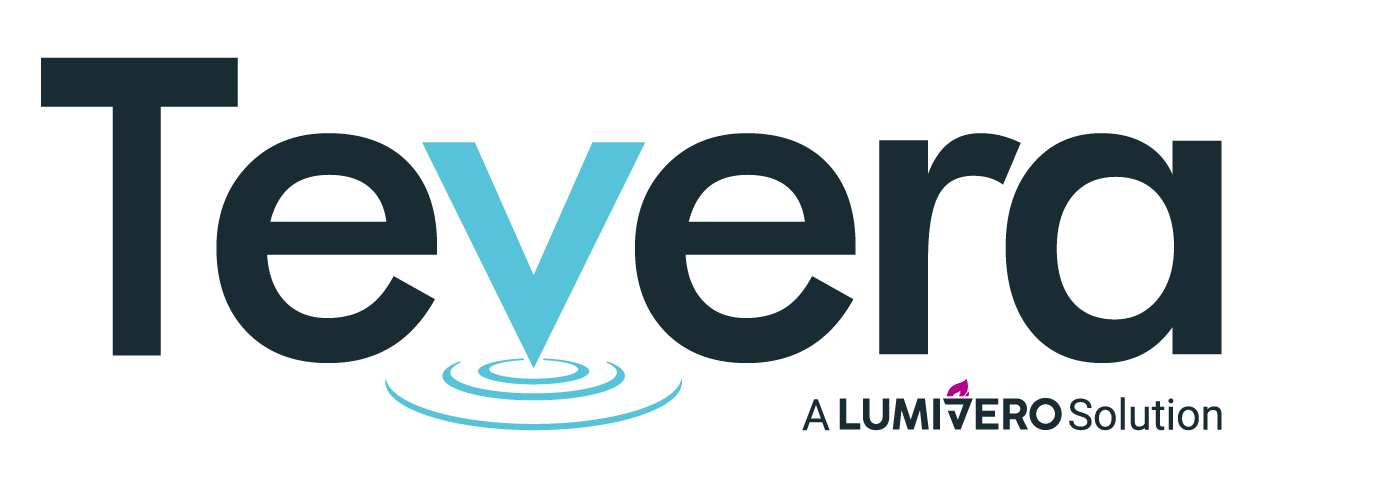What are Program Outcomes and Why are They Important?
Program outcomes are specific statements that describe the knowledge, skills, and abilities students should possess upon completing a program. They are important because they provide a clear framework for measuring student success and assessing the effectiveness of educational programs.
Enhancing Student Engagement through Effective Program Outcome Tracking
In an ever-evolving educational landscape, innovation is vital. Program outcome tracking, a method of assessing students and programs through outcomes-based measures, enables your program to continuously improve and innovate, year after year. In this article, we’ll delve into this concept and explore how deeply program outcomes and student engagement are intertwined.
The Advent of Program Outcome Tracking in Higher Education
Why Outcome Tracking Matters in Education Today
Program outcome tracking is a comprehensive approach that assesses the efficacy of academic programs. It quantifies various factors such as learning outcomes, student satisfaction, and career progression of graduates. By offering rich, insightful data, this method allows institutions to fine-tune their programs, ensuring they are aligned with the ever-evolving needs and expectations of students.
Decoding the Buzz Around Program Outcome Tracking
Let’s consider a scenario where you’re navigating a dense forest without a map or compass. The chances of reaching your intended destination would be slim. Similarly, running an educational program without a clear understanding of its outcomes is like walking blindfolded. Program outcome tracking serves as the much-needed compass, guiding universities towards the ultimate goal – student success.
Student Engagement: The Secret Sauce to Exceptional Program Outcomes
Unlocking the Meaning of Student Engagement
Student engagement isn’t just about classroom participation or good grades; it delves much deeper. It represents the degree to which students invest themselves in their academic journey. It’s a measure of their intellectual curiosity, their active involvement in learning, and their emotional connection to their studies. PLOS, a leading open-access scientific journal, published a study that found a positive correlation between student engagement and academic success.
At Tevera, we’ve seen the benefits of both field experience and outcomes based assessment as drivers for student engagement. When students have a chance to see their progress toward meeting skill and knowledge-based outcomes and practice those competencies in professional settings, their educational journey transcends the theoretical and becomes a bridge to their future.
Why Engagement Is the Cornerstone of Academic Success
Engaged students aren’t just recipients of information; they’re active contributors to their educational journey. They ask questions, discuss ideas, practice skills, and challenge conventions. The result? They tend to have better academic performance, a higher retention rate, and an overall positive and fulfilling experience in higher education.
The Powerful Intersection of Program Outcome Tracking and Student Engagement
Discovering the Symbiosis between Outcome Tracking and Engagement
Program outcome tracking and student engagement are intrinsically linked. By pinpointing areas of strength and weakness in a program, program leadership can better understand how to influence student engagement levels. On the flip side, highly engaged students are likely to produce positive program outcomes, creating a cycle of continuous improvement.
Real-World Success Stories: The Impact of Strategic Outcome Tracking
Effective outcome tracking can transform the student and faculty experience and it even has the potential to open up new possibilities for higher education programs. One Tevera partner, Thomas University, has been able to leverage Tevera’s data collection tools to apply for additional grant funding for their students.
Steps to Propel Student Engagement with Program Outcome Tracking
Navigating the Path to Effective Program Outcome Tracking
The path to effective program outcome tracking begins with setting clear, measurable objectives. Following this, it’s essential to gather relevant data consistently. Finally, regular analysis and interpretation of this data allow for continual adjustments and improvements. Remember, consistency is key; regular tracking ensures you stay on the pulse of your program’s progress.
Essential Tools and Resources for a Successful Tracking System
To set up a successful tracking system, having the right resources at your disposal is crucial. This includes cutting-edge software tools and well-trained personnel who can handle data efficiently. These resources facilitate the collection, storage, analysis, and interpretation of data, making the tracking process more streamlined and effective.
Strategic Approaches to Enhance Student Engagement
Insights from outcome tracking should feed into the strategies aimed at improving student engagement. If data reveals students struggle with a particular module, consider modifying the curriculum or teaching methods. Tailoring academic content and delivery based on these insights can dramatically increase student engagement.
Mastering the Art of Program Outcome Monitoring and Evaluation
Setting the Stage for a Robust Monitoring System
Building a robust monitoring system requires a mix of automation and human insight. A good system continuously tracks key metrics and generates real-time reports that can guide immediate action and strategic planning. This ongoing monitoring plays a vital role in maintaining the effectiveness of program outcome tracking.
As a partner in your assessment process, Tevera will enable you to gather student outcomes data dynamically, so you can enjoy maximum insights when it comes time to review your program outcomes. Learn more about our proven approach here.
The Role of Regular Evaluation in Fine-Tuning Program Outcomes
Just like any system, program outcome tracking should undergo regular review. These reviews serve as checkpoints, offering insights into the effectiveness of tracking strategies. They provide opportunities for fine-tuning and adjusting tactics, ensuring continuous improvement in program outcomes.
Tevera’s suite of program outcomes reports offer easy access to all program data and real-time insights. Learn more about the power of Tevera’s program outcomes solution here.
Technology: The Game Changer in Outcome Tracking and Student Engagement
Leveraging Technology to Facilitate Effective Tracking
Technology has a significant role to play in the realm of program outcome tracking. Cloud-based databases, advanced analytics tools, and intuitive data visualization software can automate and simplify the process. The result is more efficient and accurate tracking, freeing up valuable time for strategic analysis and planning.
Overcoming Obstacles in Program Outcome Tracking
Common Hurdles in the Path of Outcome Tracking
Like any process, outcome tracking may come with some challenges. These might include difficulties in data collection, resistance from stakeholders, or even budget constraints. By acknowledging these potential issues early on, institutions can prepare and formulate effective strategies to overcome them.
Solutions to Triumph Over Outcome Tracking Challenges
Triumphing over these challenges requires strategic planning, collaborative effort, adequate training, and appropriate resources. Outcome tracking is a journey that involves trial and error, learning from mistakes, and constantly refining strategies. Patience, resilience, and a commitment to continual improvement are vital for success.
Tevera aims to help institutions tackle these challenges by providing value for all stakeholders, not just program leadership.
With Tevera, students embark on a path to graduation and professional success beyond; program faculty enjoy streamlined workflows and simplified class management; and field supervisors save time with expedited task completion and accessible insights into their supervisees’ progress.
By providing everyone with an engaging and rewarding experience in the platform, tailored to meet their unique needs, Tevera helps generate the adoption and engagement needed for program leadership to track outcomes program-wide.
Conclusion: The Future of Student Engagement through Outcome Tracking
Wrapping Up: Why You Can’t Ignore Program Outcome Tracking
Program outcome tracking isn’t just an academia buzzword. It’s a powerful tool with the potential to transform educational programs and drastically enhance student engagement. Ignoring it could mean missing out on opportunities for growth, improvement, and academic excellence.
Taking the Next Steps in Your Outcome Tracking Journey
Understanding the importance of outcome tracking is just the first step. The next step is to take action. Define clear objectives, gather the necessary resources, and embark on your journey towards improved program outcomes and heightened student engagement. The journey may be challenging, but the rewards are well worth the effort.
Furthering Your Knowledge: Resources for Effective Outcome Tracking
Additional Reads to Deepen Your Understanding of Outcome Tracking
- Student Outcomes Assessment at Ohio University. Gray, Peter J. Assessment Update, Mar1998, Vol. 10 Issue 2, p8, 2p
- Twenty Years of Quality Assurance in Higher Education: What’s Happened and What’s Different? Detail Only Available. EWELL, PETER. Quality in Higher Education, Jul2010, Vol. 16 Issue 2, p173-175, 3p; DOI: 10.1080/13538322.2010.485728
- Student Learning Outcomes Assessment and a Method for Demonstrating Institutional Effectiveness. Babaoye, Marcus S. Assessment Update, Jul/Aug2006, Vol. 18 Issue 4, p14-15, 2p
- The role of student learning outcomes in accreditation quality review. Beno, Barbara A. New Directions for Community Colleges, Summer 2004, Issue 126, p65-72, 8p
- Two Continuums Collide: Accreditation and Assessment. Lubinescu, Edward S.; Ratcliff, James L.; Gaffney, Maureen A. New Directions for Higher Education, Spring 2001, Issue 113, p5, 17p
- Student Learning Outcomes Initiative Gets Help from Faculty and Technology. Heiland, Linda. Academic Leader, Apr2007, Vol. 23 Issue 4, p2-3, 2p
- The SUNY Assessment Initiative: initial campus and system perspectives. Francis, Patricia L.; Steven, Donald A. Assessment & Evaluation in Higher Education, Jun2003, Vol. 28 Issue 3, p333, 17p, 1 Chart
- Assessment Methods Should Match Institutional Goals. Schilling, Karl. Academic Leader, Jun2006, Vol. 22 Issue 6, p2-6, 2p The management of assessment in higher education. Yorke, Mantz. Assessment & Evaluation in Higher Education, Jun98, Vol. 23 Issue 2, p101, 16p, 1 Diagram, 3 Charts
SOLUTIONS
RELATED POSTS
PRODUCT OVERVIEW
See how Tevera can elevate your program.
What are Program Outcomes and Why are They Important?
Program outcomes are specific statements that describe the knowledge, skills, and abilities students should possess upon completing a program. They are important because they provide a clear framework for measuring student success and assessing the effectiveness of educational programs.
Enhancing Student Engagement through Effective Program Outcome Tracking
In an ever-evolving educational landscape, innovation is vital. Program outcome tracking, a method of assessing students and programs through outcomes-based measures, enables your program to continuously improve and innovate, year after year. In this article, we’ll delve into this concept and explore how deeply program outcomes and student engagement are intertwined.
The Advent of Program Outcome Tracking in Higher Education
Why Outcome Tracking Matters in Education Today
Program outcome tracking is a comprehensive approach that assesses the efficacy of academic programs. It quantifies various factors such as learning outcomes, student satisfaction, and career progression of graduates. By offering rich, insightful data, this method allows institutions to fine-tune their programs, ensuring they are aligned with the ever-evolving needs and expectations of students.
Decoding the Buzz Around Program Outcome Tracking
Let’s consider a scenario where you’re navigating a dense forest without a map or compass. The chances of reaching your intended destination would be slim. Similarly, running an educational program without a clear understanding of its outcomes is like walking blindfolded. Program outcome tracking serves as the much-needed compass, guiding universities towards the ultimate goal – student success.
Student Engagement: The Secret Sauce to Exceptional Program Outcomes
Unlocking the Meaning of Student Engagement
Student engagement isn’t just about classroom participation or good grades; it delves much deeper. It represents the degree to which students invest themselves in their academic journey. It’s a measure of their intellectual curiosity, their active involvement in learning, and their emotional connection to their studies. PLOS, a leading open-access scientific journal, published a study that found a positive correlation between student engagement and academic success.
At Tevera, we’ve seen the benefits of both field experience and outcomes based assessment as drivers for student engagement. When students have a chance to see their progress toward meeting skill and knowledge-based outcomes and practice those competencies in professional settings, their educational journey transcends the theoretical and becomes a bridge to their future.
Why Engagement Is the Cornerstone of Academic Success
Engaged students aren’t just recipients of information; they’re active contributors to their educational journey. They ask questions, discuss ideas, practice skills, and challenge conventions. The result? They tend to have better academic performance, a higher retention rate, and an overall positive and fulfilling experience in higher education.
The Powerful Intersection of Program Outcome Tracking and Student Engagement
Discovering the Symbiosis between Outcome Tracking and Engagement
Program outcome tracking and student engagement are intrinsically linked. By pinpointing areas of strength and weakness in a program, program leadership can better understand how to influence student engagement levels. On the flip side, highly engaged students are likely to produce positive program outcomes, creating a cycle of continuous improvement.
Real-World Success Stories: The Impact of Strategic Outcome Tracking
Effective outcome tracking can transform the student and faculty experience and it even has the potential to open up new possibilities for higher education programs. One Tevera partner, Thomas University, has been able to leverage Tevera’s data collection tools to apply for additional grant funding for their students.
Steps to Propel Student Engagement with Program Outcome Tracking
Navigating the Path to Effective Program Outcome Tracking
The path to effective program outcome tracking begins with setting clear, measurable objectives. Following this, it’s essential to gather relevant data consistently. Finally, regular analysis and interpretation of this data allow for continual adjustments and improvements. Remember, consistency is key; regular tracking ensures you stay on the pulse of your program’s progress.
Essential Tools and Resources for a Successful Tracking System
To set up a successful tracking system, having the right resources at your disposal is crucial. This includes cutting-edge software tools and well-trained personnel who can handle data efficiently. These resources facilitate the collection, storage, analysis, and interpretation of data, making the tracking process more streamlined and effective.
Strategic Approaches to Enhance Student Engagement
Insights from outcome tracking should feed into the strategies aimed at improving student engagement. If data reveals students struggle with a particular module, consider modifying the curriculum or teaching methods. Tailoring academic content and delivery based on these insights can dramatically increase student engagement.
Mastering the Art of Program Outcome Monitoring and Evaluation
Setting the Stage for a Robust Monitoring System
Building a robust monitoring system requires a mix of automation and human insight. A good system continuously tracks key metrics and generates real-time reports that can guide immediate action and strategic planning. This ongoing monitoring plays a vital role in maintaining the effectiveness of program outcome tracking.
As a partner in your assessment process, Tevera will enable you to gather student outcomes data dynamically, so you can enjoy maximum insights when it comes time to review your program outcomes. Learn more about our proven approach here.
The Role of Regular Evaluation in Fine-Tuning Program Outcomes
Just like any system, program outcome tracking should undergo regular review. These reviews serve as checkpoints, offering insights into the effectiveness of tracking strategies. They provide opportunities for fine-tuning and adjusting tactics, ensuring continuous improvement in program outcomes.
Tevera’s suite of program outcomes reports offer easy access to all program data and real-time insights. Learn more about the power of Tevera’s program outcomes solution here.
Technology: The Game Changer in Outcome Tracking and Student Engagement
Leveraging Technology to Facilitate Effective Tracking
Technology has a significant role to play in the realm of program outcome tracking. Cloud-based databases, advanced analytics tools, and intuitive data visualization software can automate and simplify the process. The result is more efficient and accurate tracking, freeing up valuable time for strategic analysis and planning.
Overcoming Obstacles in Program Outcome Tracking
Common Hurdles in the Path of Outcome Tracking
Like any process, outcome tracking may come with some challenges. These might include difficulties in data collection, resistance from stakeholders, or even budget constraints. By acknowledging these potential issues early on, institutions can prepare and formulate effective strategies to overcome them.
Solutions to Triumph Over Outcome Tracking Challenges
Triumphing over these challenges requires strategic planning, collaborative effort, adequate training, and appropriate resources. Outcome tracking is a journey that involves trial and error, learning from mistakes, and constantly refining strategies. Patience, resilience, and a commitment to continual improvement are vital for success.
Tevera aims to help institutions tackle these challenges by providing value for all stakeholders, not just program leadership.
With Tevera, students embark on a path to graduation and professional success beyond; program faculty enjoy streamlined workflows and simplified class management; and field supervisors save time with expedited task completion and accessible insights into their supervisees’ progress.
By providing everyone with an engaging and rewarding experience in the platform, tailored to meet their unique needs, Tevera helps generate the adoption and engagement needed for program leadership to track outcomes program-wide.
Conclusion: The Future of Student Engagement through Outcome Tracking
Wrapping Up: Why You Can’t Ignore Program Outcome Tracking
Program outcome tracking isn’t just an academia buzzword. It’s a powerful tool with the potential to transform educational programs and drastically enhance student engagement. Ignoring it could mean missing out on opportunities for growth, improvement, and academic excellence.
Taking the Next Steps in Your Outcome Tracking Journey
Understanding the importance of outcome tracking is just the first step. The next step is to take action. Define clear objectives, gather the necessary resources, and embark on your journey towards improved program outcomes and heightened student engagement. The journey may be challenging, but the rewards are well worth the effort.
Furthering Your Knowledge: Resources for Effective Outcome Tracking
Additional Reads to Deepen Your Understanding of Outcome Tracking
- Student Outcomes Assessment at Ohio University. Gray, Peter J. Assessment Update, Mar1998, Vol. 10 Issue 2, p8, 2p
- Twenty Years of Quality Assurance in Higher Education: What’s Happened and What’s Different? Detail Only Available. EWELL, PETER. Quality in Higher Education, Jul2010, Vol. 16 Issue 2, p173-175, 3p; DOI: 10.1080/13538322.2010.485728
- Student Learning Outcomes Assessment and a Method for Demonstrating Institutional Effectiveness. Babaoye, Marcus S. Assessment Update, Jul/Aug2006, Vol. 18 Issue 4, p14-15, 2p
- The role of student learning outcomes in accreditation quality review. Beno, Barbara A. New Directions for Community Colleges, Summer 2004, Issue 126, p65-72, 8p
- Two Continuums Collide: Accreditation and Assessment. Lubinescu, Edward S.; Ratcliff, James L.; Gaffney, Maureen A. New Directions for Higher Education, Spring 2001, Issue 113, p5, 17p
- Student Learning Outcomes Initiative Gets Help from Faculty and Technology. Heiland, Linda. Academic Leader, Apr2007, Vol. 23 Issue 4, p2-3, 2p
- The SUNY Assessment Initiative: initial campus and system perspectives. Francis, Patricia L.; Steven, Donald A. Assessment & Evaluation in Higher Education, Jun2003, Vol. 28 Issue 3, p333, 17p, 1 Chart
- Assessment Methods Should Match Institutional Goals. Schilling, Karl. Academic Leader, Jun2006, Vol. 22 Issue 6, p2-6, 2p The management of assessment in higher education. Yorke, Mantz. Assessment & Evaluation in Higher Education, Jun98, Vol. 23 Issue 2, p101, 16p, 1 Diagram, 3 Charts
What are Program Outcomes and Why are They Important?
Program outcomes are specific statements that describe the knowledge, skills, and abilities students should possess upon completing a program. They are important because they provide a clear framework for measuring student success and assessing the effectiveness of educational programs.
Enhancing Student Engagement through Effective Program Outcome Tracking
In an ever-evolving educational landscape, innovation is vital. Program outcome tracking, a method of assessing students and programs through outcomes-based measures, enables your program to continuously improve and innovate, year after year. In this article, we’ll delve into this concept and explore how deeply program outcomes and student engagement are intertwined.
The Advent of Program Outcome Tracking in Higher Education
Why Outcome Tracking Matters in Education Today
Program outcome tracking is a comprehensive approach that assesses the efficacy of academic programs. It quantifies various factors such as learning outcomes, student satisfaction, and career progression of graduates. By offering rich, insightful data, this method allows institutions to fine-tune their programs, ensuring they are aligned with the ever-evolving needs and expectations of students.
Decoding the Buzz Around Program Outcome Tracking
Let’s consider a scenario where you’re navigating a dense forest without a map or compass. The chances of reaching your intended destination would be slim. Similarly, running an educational program without a clear understanding of its outcomes is like walking blindfolded. Program outcome tracking serves as the much-needed compass, guiding universities towards the ultimate goal – student success.
Student Engagement: The Secret Sauce to Exceptional Program Outcomes
Unlocking the Meaning of Student Engagement
Student engagement isn’t just about classroom participation or good grades; it delves much deeper. It represents the degree to which students invest themselves in their academic journey. It’s a measure of their intellectual curiosity, their active involvement in learning, and their emotional connection to their studies. PLOS, a leading open-access scientific journal, published a study that found a positive correlation between student engagement and academic success.
At Tevera, we’ve seen the benefits of both field experience and outcomes based assessment as drivers for student engagement. When students have a chance to see their progress toward meeting skill and knowledge-based outcomes and practice those competencies in professional settings, their educational journey transcends the theoretical and becomes a bridge to their future.
Why Engagement Is the Cornerstone of Academic Success
Engaged students aren’t just recipients of information; they’re active contributors to their educational journey. They ask questions, discuss ideas, practice skills, and challenge conventions. The result? They tend to have better academic performance, a higher retention rate, and an overall positive and fulfilling experience in higher education.
The Powerful Intersection of Program Outcome Tracking and Student Engagement
Discovering the Symbiosis between Outcome Tracking and Engagement
Program outcome tracking and student engagement are intrinsically linked. By pinpointing areas of strength and weakness in a program, program leadership can better understand how to influence student engagement levels. On the flip side, highly engaged students are likely to produce positive program outcomes, creating a cycle of continuous improvement.
Real-World Success Stories: The Impact of Strategic Outcome Tracking
Effective outcome tracking can transform the student and faculty experience and it even has the potential to open up new possibilities for higher education programs. One Tevera partner, Thomas University, has been able to leverage Tevera’s data collection tools to apply for additional grant funding for their students.
Steps to Propel Student Engagement with Program Outcome Tracking
Navigating the Path to Effective Program Outcome Tracking
The path to effective program outcome tracking begins with setting clear, measurable objectives. Following this, it’s essential to gather relevant data consistently. Finally, regular analysis and interpretation of this data allow for continual adjustments and improvements. Remember, consistency is key; regular tracking ensures you stay on the pulse of your program’s progress.
Essential Tools and Resources for a Successful Tracking System
To set up a successful tracking system, having the right resources at your disposal is crucial. This includes cutting-edge software tools and well-trained personnel who can handle data efficiently. These resources facilitate the collection, storage, analysis, and interpretation of data, making the tracking process more streamlined and effective.
Strategic Approaches to Enhance Student Engagement
Insights from outcome tracking should feed into the strategies aimed at improving student engagement. If data reveals students struggle with a particular module, consider modifying the curriculum or teaching methods. Tailoring academic content and delivery based on these insights can dramatically increase student engagement.
Mastering the Art of Program Outcome Monitoring and Evaluation
Setting the Stage for a Robust Monitoring System
Building a robust monitoring system requires a mix of automation and human insight. A good system continuously tracks key metrics and generates real-time reports that can guide immediate action and strategic planning. This ongoing monitoring plays a vital role in maintaining the effectiveness of program outcome tracking.
As a partner in your assessment process, Tevera will enable you to gather student outcomes data dynamically, so you can enjoy maximum insights when it comes time to review your program outcomes. Learn more about our proven approach here.
The Role of Regular Evaluation in Fine-Tuning Program Outcomes
Just like any system, program outcome tracking should undergo regular review. These reviews serve as checkpoints, offering insights into the effectiveness of tracking strategies. They provide opportunities for fine-tuning and adjusting tactics, ensuring continuous improvement in program outcomes.
Tevera’s suite of program outcomes reports offer easy access to all program data and real-time insights. Learn more about the power of Tevera’s program outcomes solution here.
Technology: The Game Changer in Outcome Tracking and Student Engagement
Leveraging Technology to Facilitate Effective Tracking
Technology has a significant role to play in the realm of program outcome tracking. Cloud-based databases, advanced analytics tools, and intuitive data visualization software can automate and simplify the process. The result is more efficient and accurate tracking, freeing up valuable time for strategic analysis and planning.
Overcoming Obstacles in Program Outcome Tracking
Common Hurdles in the Path of Outcome Tracking
Like any process, outcome tracking may come with some challenges. These might include difficulties in data collection, resistance from stakeholders, or even budget constraints. By acknowledging these potential issues early on, institutions can prepare and formulate effective strategies to overcome them.
Solutions to Triumph Over Outcome Tracking Challenges
Triumphing over these challenges requires strategic planning, collaborative effort, adequate training, and appropriate resources. Outcome tracking is a journey that involves trial and error, learning from mistakes, and constantly refining strategies. Patience, resilience, and a commitment to continual improvement are vital for success.
Tevera aims to help institutions tackle these challenges by providing value for all stakeholders, not just program leadership.
With Tevera, students embark on a path to graduation and professional success beyond; program faculty enjoy streamlined workflows and simplified class management; and field supervisors save time with expedited task completion and accessible insights into their supervisees’ progress.
By providing everyone with an engaging and rewarding experience in the platform, tailored to meet their unique needs, Tevera helps generate the adoption and engagement needed for program leadership to track outcomes program-wide.
Conclusion: The Future of Student Engagement through Outcome Tracking
Wrapping Up: Why You Can’t Ignore Program Outcome Tracking
Program outcome tracking isn’t just an academia buzzword. It’s a powerful tool with the potential to transform educational programs and drastically enhance student engagement. Ignoring it could mean missing out on opportunities for growth, improvement, and academic excellence.
Taking the Next Steps in Your Outcome Tracking Journey
Understanding the importance of outcome tracking is just the first step. The next step is to take action. Define clear objectives, gather the necessary resources, and embark on your journey towards improved program outcomes and heightened student engagement. The journey may be challenging, but the rewards are well worth the effort.
Furthering Your Knowledge: Resources for Effective Outcome Tracking
Additional Reads to Deepen Your Understanding of Outcome Tracking
- Student Outcomes Assessment at Ohio University. Gray, Peter J. Assessment Update, Mar1998, Vol. 10 Issue 2, p8, 2p
- Twenty Years of Quality Assurance in Higher Education: What’s Happened and What’s Different? Detail Only Available. EWELL, PETER. Quality in Higher Education, Jul2010, Vol. 16 Issue 2, p173-175, 3p; DOI: 10.1080/13538322.2010.485728
- Student Learning Outcomes Assessment and a Method for Demonstrating Institutional Effectiveness. Babaoye, Marcus S. Assessment Update, Jul/Aug2006, Vol. 18 Issue 4, p14-15, 2p
- The role of student learning outcomes in accreditation quality review. Beno, Barbara A. New Directions for Community Colleges, Summer 2004, Issue 126, p65-72, 8p
- Two Continuums Collide: Accreditation and Assessment. Lubinescu, Edward S.; Ratcliff, James L.; Gaffney, Maureen A. New Directions for Higher Education, Spring 2001, Issue 113, p5, 17p
- Student Learning Outcomes Initiative Gets Help from Faculty and Technology. Heiland, Linda. Academic Leader, Apr2007, Vol. 23 Issue 4, p2-3, 2p
- The SUNY Assessment Initiative: initial campus and system perspectives. Francis, Patricia L.; Steven, Donald A. Assessment & Evaluation in Higher Education, Jun2003, Vol. 28 Issue 3, p333, 17p, 1 Chart
- Assessment Methods Should Match Institutional Goals. Schilling, Karl. Academic Leader, Jun2006, Vol. 22 Issue 6, p2-6, 2p The management of assessment in higher education. Yorke, Mantz. Assessment & Evaluation in Higher Education, Jun98, Vol. 23 Issue 2, p101, 16p, 1 Diagram, 3 Charts


















